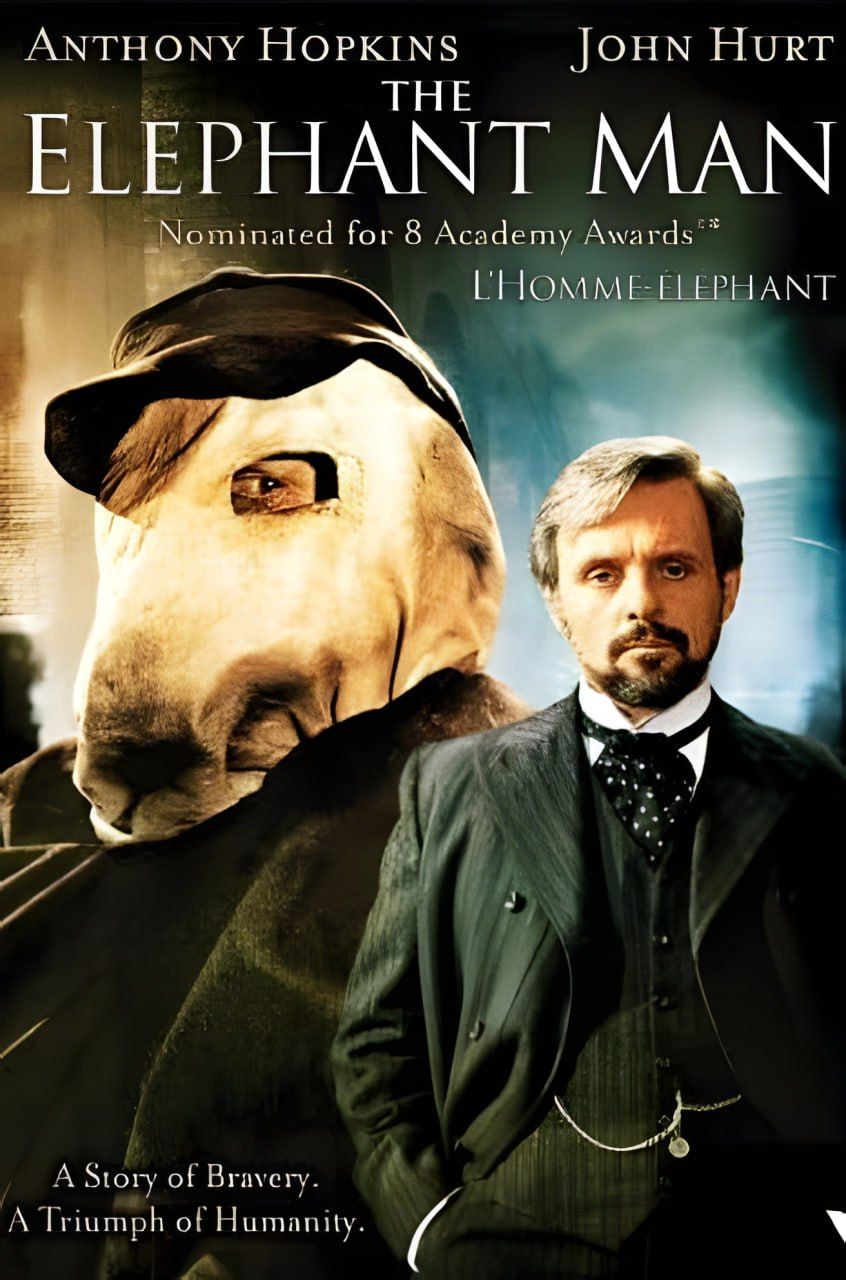THE ELEPHANT MAN (1980)

Introduction
Released in 1980, The Elephant Man, directed by David Lynch, is a poignant film that delves into the life of John Merrick, a man afflicted with severe physical deformities. The film is based on the true story of Merrick, who lived in Victorian England and was exhibited as a “freak” in a traveling show. This powerful narrative is not just a biopic but a profound exploration of the themes of compassion, dignity, and the quest for acceptance in a world often marred by prejudice.
Plot Summary
Set in the late 19th century, The Elephant Man follows the life of Joseph Merrick (referred to as John Merrick in the film), played by John Hurt, who suffers from extreme deformities that have made him a target for ridicule and exploitation. His tragic existence changes when he is rescued from the clutches of a cruel showman by Dr. Frederick Treves, portrayed by Anthony Hopkins, a compassionate surgeon who seeks to understand Merrick’s condition and provide him with medical care.
As the film unfolds, Merrick navigates the challenges of societal rejection and the search for his identity beyond his physical appearance. The film beautifully captures the unlikely bond that forms between Merrick and Treves, showcasing the complexities of human connection and the impact of kindness in the face of adversity.
Visual and Cinematic Style
David Lynch’s distinctive directorial style shines through in The Elephant Man. The film’s black-and-white cinematography, combined with its haunting score by John Morris, creates a surreal and atmospheric experience that complements the emotional depth of the story. Lynch’s meticulous attention to detail enhances the authenticity of the period setting, immersing viewers in the oppressive environment of Victorian London.
Themes of Compassion and Humanity
At its core, The Elephant Man serves as a critique of societal norms and the superficial judgments placed on individuals based on their appearances. The film encourages viewers to reflect on their perceptions of beauty and humanity, urging them to look beyond the surface. Merrick’s journey is one of resilience and hope, as he strives to be recognized not for his deformities but for his intellect, kindness, and capacity for love.
Critical Acclaim and Legacy
Upon its release, The Elephant Man received critical acclaim and was nominated for eight Academy Awards, including Best Picture and Best Director. John Hurt’s performance earned him a nomination for Best Actor, while Anthony Hopkins’ portrayal of Dr. Treves was widely praised for its depth and sensitivity. The film’s impact has endured over the decades, becoming a classic that resonates with audiences for its emotional power and moral lessons.

Conclusion
The Elephant Man is more than just a historical retelling; it is a timeless exploration of the human spirit and the fundamental need for acceptance and understanding. David Lynch’s masterful direction, coupled with exceptional performances, elevates this film to a profound narrative that continues to touch hearts and provoke thought. As we watch John Merrick’s journey unfold, we are reminded of the beauty of compassion and the importance of seeing beyond the surface to recognize the humanity in everyone.











